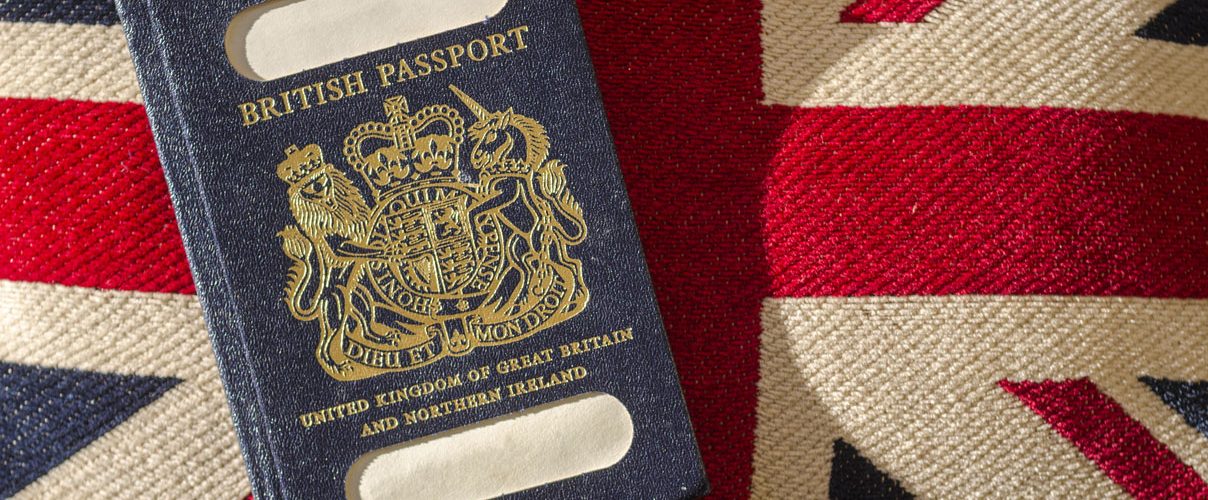A fair settlement – or a privileged caste with superior rights enforced by a foreign court?
By Martin Howe QC, Francis Hoar and Dr Gunnar Beck: full paper.
An early and fair settlement of the rights of EU citizens resident in the UK, and of UK citizens resident in the EU27, has been a priority for the British government. When the European Council published its Brexit negotiating guidelines on 29 April 2017, it appeared that the EU27 shared that objective as well and that any discussions would be limited to matters of detail.
Unfortunately, the picture radically changed on 24 May 2017 when the EU Commission published a more detailed Working Paper. This introduced two major demands, absent from the European Council’s guidelines. First, it demanded that EU citizens should, in perpetuity, have “the same level of protection as that set out in Union law at the date of withdrawal”; and, secondly, that their rights in the UK should be overseen, interpreted and enforced after Brexit by the EU Commission and by the European Court of Justice at Luxembourg (ECJ).
We have published a detailed paper which explains why each of these demands is unacceptable.
The reason that “the same level of protection” as in current EU law is so controversial is that, under the case law of the ECJ, citizens of other EU states are entitled to greater rights than British citizens. One important example is that British citizens who marry a non-EU spouse are prevented from bringing that spouse into the UK unless they can satisfy the test that they will not be a financial burden on the State. No such corresponding restriction applies to a citizen from another EU state before they may bring a non-EU spouse to live here.
So the Commission’s demand would create a population of EU nationals living in the UK, now exceeding 3 million people, all of whom would have rights for their lifetimes (and in some respects for their children’s lifetimes) exceeding those of British citizens. It is not widely understood that significant levels of immigration of non-EU nationals occur because EU law grants “derivative” rights to children and spouses, and in some cases parents and other relatives or informal family members, of EU nationals who are resident here or move here. The Commission’s demand would leave a gaping hole in the ability of the UK to control non-EU immigration. What is more, it would do so by unfairly and irrationally discriminating against UK citizens.
The Commission’s second demand is even more extraordinary. It proposes that the UK should be under the long-term jurisdiction of a foreign court after exiting from the EU, when there will no longer be any British judge on the Court. It is incredibly rare in international relations for a state party to a treaty to subject itself to the jurisdiction of the courts of the other party to the treaty. Disputes about the interpretation of treaties are, almost without exception, resolved by international tribunals or arbitral bodies which are strictly neutral between the treaty parties.
Not only is this general international practice, but it is a practice followed by the EU itself. Our examination of the many trade and association treaties which the EU has concluded reveal none in which a non-Member State has accepted the jurisdiction of the ECJ in the way proposed by the Commission. Even the agreement between the EU and tiny Andorra provides for international arbitration with a neutral chairman. Why would Britain accept an arrangement which insults its status as an independent and sovereign state, an arrangement which not even Andorra was called upon to accept? Why would the Commission expect it to? One possibility is that this has been proposed with the intention of sabotaging the Brexit negotiations with the UK.
Quite apart from the jurisdiction of a foreign court being incompatible with the status of the UK as an independent nation, we cannot expect the ECJ to give unbiased rulings on what is agreed in the Withdrawal Agreement. As we explain in our paper, the ECJ has been persistently biased against Member States, ruling in favour of the EU institutions and developing ever expanding individual rights under EU law. After the UK ceases to be an EU Member State, the court would accord us even less respect.
Finally, should a future government concede a demand along these lines, such provisions appear to fall within the “referendum lock” provided for in William Hague’s European Union Act 2011; and would trigger the need for a referendum in the UK on whether or not to accept the withdrawal agreement. It should be pointed out to those who might otherwise be alarmed by this prospect, that the referendum would be on whether to leave the EU with or without an agreement, and would not involve a potential reversal of the decision to leave.
While these unacceptable proposals should be rejected, we propose a fair and durable settlement. EU nationals resident in Britain for a sufficient period before our withdrawal from the EU on 29 March 2019 should be granted indefinite leave to remain under our immigration law. Such EU citizens should have the same rights as UK citizens to employment, benefits, pensions, education and other public services. They should have equality with UK citizens, and be automatically entitled to apply for British citizenship after 5 years’ residence.
By contrast, the Commission’s proposals would create a privileged class of over 3 million non-citizens resident in the UK, their rights enforced by a foreign court exercising jurisdiction over the UK, its government and Parliament. The closest parallel to this arrangement is when the British Supreme Court for China exercised extra-territorial jurisdiction over British citizens in China, who were not subject to the jurisdiction of the courts of China. This operated alongside similar extra-territorial courts for citizens of the other Western powers. This striking parallel has occurred not only to us, but also to Franklin Dehousse, who recently retired as a Judge of the EU General Court in Luxembourg. He said:
“in principle, it is hard to justify that EU migrants, through the maintaining of many European regulations, will become some sort of a super-privileged caste in the future UK (as will the UK migrants in the EU Member States). The country will thus become some kind of new 1930 Shanghai, where the EU citizens will benefit from multiple privileges (the more so if the European Court of Justice keeps a full jurisdiction).”
We cannot agree more. Only robust rejection of these demands by the British government will get the negotiations on track; and such a rejection is necessary to bring home to the EU Member States that they need to curb this unreasonable behaviour by the Commission.
from: https://lawyersforbritain.org/eu-deal-privileged-caste.shtml








